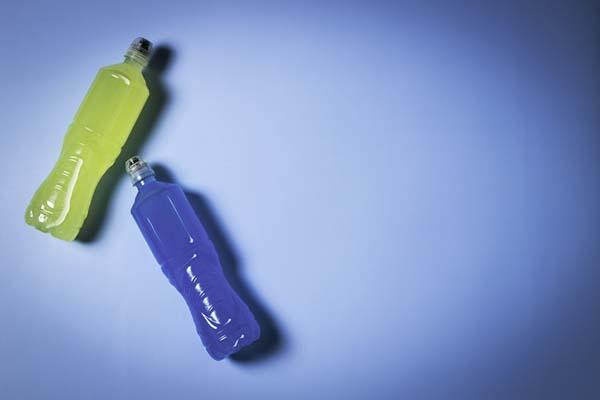Are energy drinks bad for you?

Adapted from Boosting Your Energy , Medical Editor: Anthony L. Komaroff, MD, Simcox-Clifford-Higby Professor of Medicine, Harvard Medical School; Senior Physician, Brigham & Women’s Hospital, Boston.
Energy drinks may be popular, but are they bad for you?
Looking for energy from a bottle? You’re not alone. Energy drinks and shots — including Prime, Monster Energy, Red Bull, and Rockstar — are hugely popular, particularly among teenagers and young adults, who drink them not only to boost flagging energy levels but also to help with weight loss.
More than 500 energy drink products are on the market in the U.S., with annual sales topping $25 billion, and projected to exceed $50 billion by 2033.
Caffeine in energy drinks
There’s no magic formula in energy drinks; it’s mostly old-fashioned caffeine that provides the jolt. Consumer Reports tested 27 energy drinks and found that the amount of caffeine ranged from 6 to 242 milligrams (mg) per serving — and there is more than one serving in some cans and bottles.
By comparison:
- coffee has roughly 100 mg of caffeine in a 5- to 8-ounce cup
- 12 ounces of Coca-Cola has 50 mg.
Most of the drinks also contain lots of sugar, which along with the caffeine can lead to a rush of energy and then a crash (just like the sugar in a candy bar). Even sugar-free or 'natural’ energy drinks often contain high doses of caffeine and can pose similar health risks.
Energy drinks also contain a mix of herbs and other substances that are marketed as “energy boosters,” but they haven’t actually been proven to increase energy unless the drinks also contain caffeine.
The bigger concern: energy drinks' side effects
Some people — particularly young adults — may consume too many of these drinks. When they do, all that caffeine (a diuretic) can contribute to dehydration and other problems. The FDA considers up to 400 mg per day safe for most healthy adults, but teens should limit intake to 100 mg or less per day.
The FDA has received numerous reports linking energy drink consumption to deaths and serious adverse reactions, including elevated blood pressure, convulsions, and heart rhythm abnormalities. Many of these cases have resulted in hospitalizations.
From 2022 to 2023, there was a 24.2% increase in cases of pediatric exposure to energy drinks for children and teens under 20 years old, according to America’s Poison Centers. The majority, or 78%, of these cases were unintentional exposures, meaning the children did not realize they were consuming energy drinks or how much caffeine they were drinking.
Emergency room visits related to caffeine overdose or adverse effects more than doubled for middle school children from 2017 to 2023.
Energy drinks and heart problems
Research has shown that energy drinks can disrupt normal heart function. People who consume energy drinks experience elevated blood pressure and abnormal electrical activity in the heart for hours afterward — changes that may raise the risk of serious, potentially life-threatening arrhythmias.
Case reports have also linked heavy energy drink use, especially when combined with alcohol or intense physical exertion, to episodes of cardiac arrest.
Mixing energy drinks with alcohol
Public health experts have raised alarms about this practice, prompting the FDA to warn manufacturers that caffeine is an “unsafe additive” to an alcoholic beverage.
- The stimulant effect of energy drinks can counteract the sedative effects of alcohol, enabling longer drinking.
- Caffeine can mask intoxication, leading people to underestimate their impairment and potentially drive when it is unsafe.
Are energy drinks dangerous? The bottom line
If you have heart problems or high blood pressure, avoid energy drinks.
If you are healthy and need a quick surge of energy, it is okay to consume an occasional energy drink — no more than one a day — but this shouldn’t be a daily or long-term practice.
It’s far better to drink a single cup of coffee or tea, or better yet, create energy through proven nutritional, exercise, and lifestyle strategies.
Disclaimer:
As a service to our readers, Harvard Health Publishing provides access to our library of archived content. Please note the date of last review or update on all articles.
No content on this site, regardless of date, should ever be used as a substitute for direct medical advice from your doctor or other qualified clinician.















